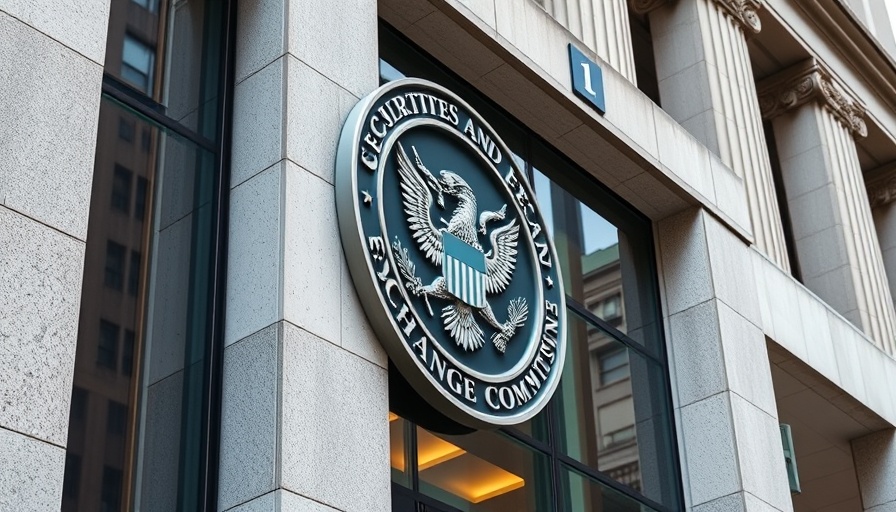
Understanding Mandatory Arbitration Rules: The SEC's Proposal
The SEC's recent proposal to harmonize mandatory arbitration rules between Registered Investment Advisors (RIAs) and broker/dealers (B/Ds) has thrust financial regulations into the spotlight. The Investor Advisory Committee recommended these changes not to eliminate arbitration clauses outright, a move some investor advocates had desired, but to align the rules better between two sets of financial service providers.
Why This Matters for Investors
A significant concern surrounding arbitration clauses is their potential to disadvantage investors. According to a recent SEC report, around 60% of SEC-registered advisors who work with retail clients include such clauses in their advisory agreements. Alarmingly, 97% of these clauses did not consider the investor's location when determining the venue for arbitration hearings. This creates considerable barriers for clients wishing to seek recourse, often pushing them into expensive and lengthy arbitration processes.
Comparing RIA and B/D Arbitration Systems
One key aspect differentiating RIAs from B/Ds lies in how they manage disputes. While B/Ds are required to designate FINRA as their arbitration forum, RIAs can compel clients to resolve disputes through private arbitration venues like the American Arbitration Association. This flexibility, while seemingly beneficial, can lead to prohibitive costs for investors. Fees for arbitrators can easily reach thousands of dollars per day, transforming an already difficult process into an exhaustive financial burden for clients.
Investor Advocacy and Regulatory Insights
This push for reform comes against the backdrop of evolving regulatory landscapes marked by the Dodd-Frank Act and increased congressional scrutiny on the use of arbitration clauses by RIAs. Though the SEC stopped short of an outright ban on mandatory arbitration, its efforts signal an acknowledgment of investor grievances and a step toward more equitable practices.
The Future of Financial Regulations: What’s Next?
As mandatory arbitration rules continue to develop, financial professionals must stay informed and advocate for their clients' best interests. The SEC's proposed harmonization indicates a potential shift toward greater transparency and fairness in financial agreements. Investors and advisors alike should engage in open dialogues about these changes to better understand their implications and keep the conversation alive regarding consumer protections within the financial sector.
In conclusion, this proposal by the SEC represents a pivotal moment for investors and RIAs, as it pushes for a more balanced approach to arbitration agreements in financial services. As financial planners and wealth advisors, staying informed on these changes is essential not only to protect your clients but also to uphold the integrity of your practice.
 Add Row
Add Row  Add
Add 




 Add Row
Add Row  Add
Add 

Write A Comment